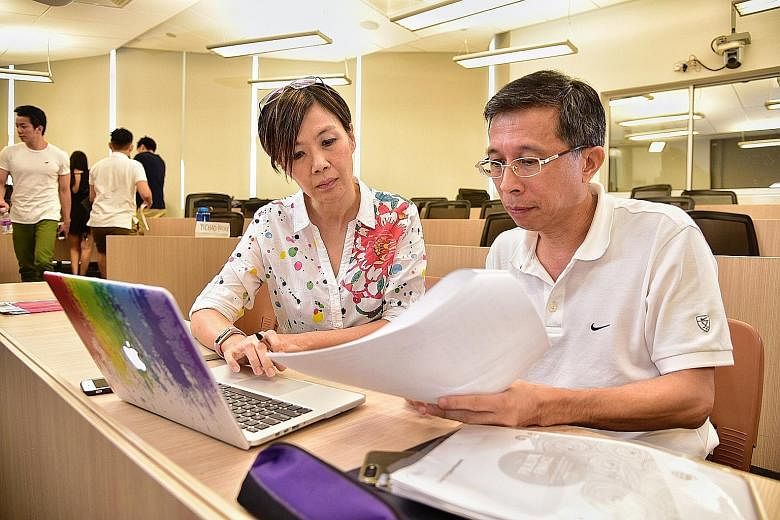Singapore's oldest university will redesign classes to serve industry needs, find fresh assessment methods and ways to make it easier for adults to take classes - all part of its "bold" push in encouraging its alumni to learn for life.
Minister for Education (Higher Education and Skills) Ong Ye Kung announced on Monday that the National University of Singapore (NUS) will allow its undergraduates to be "enrolled" for 20 years, as the changing job market requires workers to upgrade their skills.
This will qualify them for continuing education and training (CET) courses that they can take after they complete their degrees and go out to work.
NUS alumni - all 288,600 of them - are also automatically eligible for these courses as part of the initiative called NUS Lifelong Learners, or L³ for short. Five hundred courses will be available in areas such as tech-enabled services, finance, urban solutions and data analytics.
NUS will offer virtual vouchers to alumni to offset the cost of one of its CET courses of the student's choosing. The university plans to offer 20,000 CET training places annually by the end of 2020.
The cost of courses will differ depending on their duration, from about $800 per day. NUS will also look into offering programmes in leadership and management that target older adults.
NUS provost Ho Teck Hua said the university will "figure out a way to satisfy the demand".
"Capacity shouldn't be an issue in the short term. We have enough for 10,000 to 50,000 adults in one semester."
If more show up, he said, NUS will look into hiring more part-time instructors, delivering more classes over weekends, investing more in technology, or even "staggering" alumni enrolment.
NUS also plans to develop a service to keep it in touch with alumni and offer advice.
"Currently we're asking them to make their own choices, but it will be nice to nudge them with advice, some help, curate training opportunities and job offers based on their profiles," said Professor Ho.
"Someone might ask why stop at 20 years. Once a person is above 40, he would have a lot of work experience. We're hoping that the courses we provide will carry them beyond 40 years old."
Ms Wong Shu Yan, who graduated from NUS' faculty of engineering in 2012, called L³ a "very good initiative" as she has always wanted to go back to keep learning.
"There are a lot of things I haven't acquired knowledge about, or been able to apply at work yet. And I still have so many years down the road," said the 29-year-old, a workforce development manager in a semiconductor company.
Ms Nicole Png, who will apply to either NUS or Nanyang Technological University by the end of this month, said knowing that there are avenues to learn more after graduating helps to ease some fears.
"A lot of us who just finished the A levels feel that it's quite rushed to decide what we want to study next, or do as a job," said the 18-year-old. "The L³ programme gives me some confidence, that I can keep going back to school to learn something new if things change and there are new discoveries, or if I need to make a career switch in future."
Prof Ho said L³'s aim is to transform tertiary education.
"We're saying, it's a guarantee that you will be in this big family for 20 years. If you want another certification, we cannot say no to you because we're committed."


